Abstract:
We investigate the modeling of inverse dynamics without prior kinematic information for holonomic rigid-body robots. Despite success in compensating robot dynamics and fr...Show MoreMetadata
Abstract:
We investigate the modeling of inverse dynamics without prior kinematic information for holonomic rigid-body robots. Despite success in compensating robot dynamics and friction, general inverse dynamics models are nontrivial. Rigid-body models are restrictive or inefficient; learning-based models are generalizable yet require large training data. The structured kernels address the dilemma by embedding the robot dynamics in reproducing kernel Hilbert space. The proposed kernels autonomously converge to rigid-body models but require fewer samples; with a semi-parametric framework that incorporates additional parametric basis for friction, the structured kernels can efficiently model general rigid-body robots. We tested the proposed scheme in simulations and experiments; the models that consider the structure of function space are more accurate.
Published in: IEEE Transactions on Cybernetics ( Volume: 46, Issue: 7, July 2016)
Funding Agency:
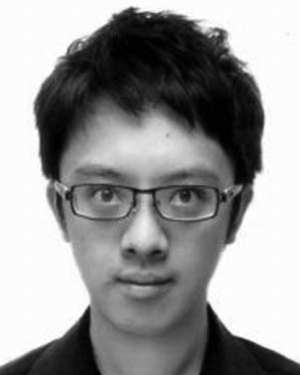
Department of Mechanical Engineering, National Taiwan University, Taipei, Taiwan
Ching-An Cheng received the double B.S. degrees in mechanical engineering and electrical engineering and the M.S. degree in mechanical engineering from National Taiwan University, Taipei, Taiwan, in 2011 and 2013, respectively. He is currently pursuing the Ph.D. degree in robotics with the Georgia Institute of Technology, Atlanta, GA, USA.
From 2014 to 2015, he was a Research Assistant with NTU Robotics Laboratory, Departm...Show More
Ching-An Cheng received the double B.S. degrees in mechanical engineering and electrical engineering and the M.S. degree in mechanical engineering from National Taiwan University, Taipei, Taiwan, in 2011 and 2013, respectively. He is currently pursuing the Ph.D. degree in robotics with the Georgia Institute of Technology, Atlanta, GA, USA.
From 2014 to 2015, he was a Research Assistant with NTU Robotics Laboratory, Departm...View more
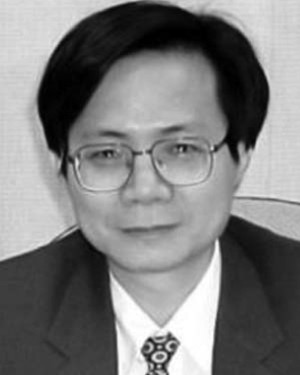
Department of Mechanical Engineering, National Taiwan University, Taipei, Taiwan
Han-Pang Huang (S’83–M’86) received the M.S. and Ph.D. degrees in electrical engineering from the University of Michigan, Ann Arbor, MI, USA, in 1982 and 1986, respectively.
Since 1986, he has been with National Taiwan University, Taipei, Taiwan, where he is currently a Professor with the Department of Mechanical Engineering and the Graduate Institute of Industrial Engineering and serves as the Director of NTU Robotics Lab...Show More
Han-Pang Huang (S’83–M’86) received the M.S. and Ph.D. degrees in electrical engineering from the University of Michigan, Ann Arbor, MI, USA, in 1982 and 1986, respectively.
Since 1986, he has been with National Taiwan University, Taipei, Taiwan, where he is currently a Professor with the Department of Mechanical Engineering and the Graduate Institute of Industrial Engineering and serves as the Director of NTU Robotics Lab...View more
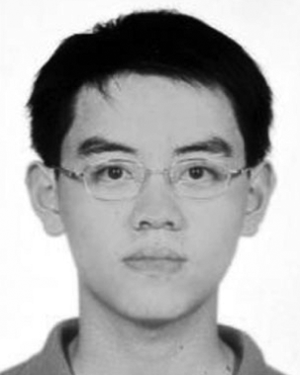
Department of Mechanical Engineering, National Taiwan University, Taipei, Taiwan
Huan-Kun Hsu received the B.S. and M.S. degrees from National Chiao Tung University, Hsinchu, Taiwan, in 2006 and 2008, respectively. He is currently pursuing the Ph.D. degree in mechanical engineering with NTU Robotics Laboratory, Department of Mechanical Engineering, National Taiwan University, Taipei, Taiwan.
He was a Researcher with Taiwan Shin Kong Security Company, Taipei, from 2010 to 2011. His current research inte...Show More
Huan-Kun Hsu received the B.S. and M.S. degrees from National Chiao Tung University, Hsinchu, Taiwan, in 2006 and 2008, respectively. He is currently pursuing the Ph.D. degree in mechanical engineering with NTU Robotics Laboratory, Department of Mechanical Engineering, National Taiwan University, Taipei, Taiwan.
He was a Researcher with Taiwan Shin Kong Security Company, Taipei, from 2010 to 2011. His current research inte...View more
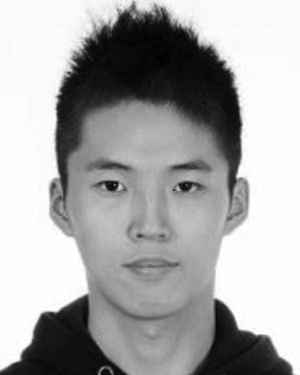
Department of Mechanical Engineering, National Taiwan University, Taipei, Taiwan
Wei-Zh Lai received the B.S. and M.S. degrees in mechanical engineering from National Taiwan University, Taipei, Taiwan, in 2012 and 2014, respectively.
Since 2014, he has been a Researcher with Syntec Ltd., Hsinchu, Taiwan. His current research interests include legged robots and motion control.
Wei-Zh Lai received the B.S. and M.S. degrees in mechanical engineering from National Taiwan University, Taipei, Taiwan, in 2012 and 2014, respectively.
Since 2014, he has been a Researcher with Syntec Ltd., Hsinchu, Taiwan. His current research interests include legged robots and motion control.View more
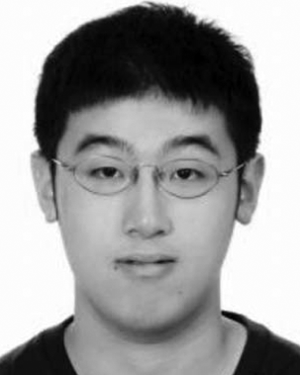
Department of Mechanical Engineering, National Taiwan University, Taipei, Taiwan
Chih-Chun Cheng received the B.S. and M.S. degrees in mechanical engineering from National Taiwan University, Taipei, Taiwan, in 2012 and 2014 respectively.
His current research interests include anthropomorphic robot hand and grasping.
Chih-Chun Cheng received the B.S. and M.S. degrees in mechanical engineering from National Taiwan University, Taipei, Taiwan, in 2012 and 2014 respectively.
His current research interests include anthropomorphic robot hand and grasping.View more

Department of Mechanical Engineering, National Taiwan University, Taipei, Taiwan
Ching-An Cheng received the double B.S. degrees in mechanical engineering and electrical engineering and the M.S. degree in mechanical engineering from National Taiwan University, Taipei, Taiwan, in 2011 and 2013, respectively. He is currently pursuing the Ph.D. degree in robotics with the Georgia Institute of Technology, Atlanta, GA, USA.
From 2014 to 2015, he was a Research Assistant with NTU Robotics Laboratory, Department of Mechanical Engineering, National Taiwan University. His current research interests include robot control and learning, reproducing kernel Hilbert space, system dynamics and identification, human-robot interaction, and exoskeletons.
Ching-An Cheng received the double B.S. degrees in mechanical engineering and electrical engineering and the M.S. degree in mechanical engineering from National Taiwan University, Taipei, Taiwan, in 2011 and 2013, respectively. He is currently pursuing the Ph.D. degree in robotics with the Georgia Institute of Technology, Atlanta, GA, USA.
From 2014 to 2015, he was a Research Assistant with NTU Robotics Laboratory, Department of Mechanical Engineering, National Taiwan University. His current research interests include robot control and learning, reproducing kernel Hilbert space, system dynamics and identification, human-robot interaction, and exoskeletons.View more

Department of Mechanical Engineering, National Taiwan University, Taipei, Taiwan
Han-Pang Huang (S’83–M’86) received the M.S. and Ph.D. degrees in electrical engineering from the University of Michigan, Ann Arbor, MI, USA, in 1982 and 1986, respectively.
Since 1986, he has been with National Taiwan University, Taipei, Taiwan, where he is currently a Professor with the Department of Mechanical Engineering and the Graduate Institute of Industrial Engineering and serves as the Director of NTU Robotics Laboratory. He has been elected as a Distinguished Professor of the National Taiwan University since 2006, and held the position of Zhong Zhuo-Zhang Chair Professor since 2009. He served as the Director of Manufacturing Automation Technology Research Center, an Associate Dean with the College of Engineering, the Director of the Graduate Institute of Industrial Engineering, and the Chairperson of Mechanical Engineering with National Taiwan University. His current research interests include machine intelligence, humanoid robots, intelligent robotic systems, prosthetic hands, nanomanipulation, and nonlinear systems.
Prof. Huang was a recipient of the Ford University Research Award from 1996 to 1998, the Distinguished Research Award thrice from 1996 to 2002, the Research Fellow Award twice from 2002 to 2008, the Distinguished Research Fellow Award from the National Science Council, Taiwan, in 2009, the Distinguished Education Award on Radio Frequency Identification from EPCglobal in 2010, the TECO Outstanding Science and Technology Research Achievement Award in 2012, the HIWIN Technologies Corp Distinguished Industry Creation Award in 2014. He was an Editor-in-Chief of the Journal of Chinese Fuzzy System Association from 1997 to 1999, the International Journal of Fuzzy System from 1999 to 2002, an Associate Editor of the IEEE Transactions on Automation Science and Engineering from 2003 to 2005, an Associate Editor of the International Journal of Advanced Robotics Systems, the IEEE/ASME Transactions on Mechatronics, and the Publication Management Committee of IEEE/ASME journals, and an Editorial Board Member of the International Journal of Advanced Robotics from 2004 to 2008 and the International Journal of Service Robots. He is currently on the editorial board of the International Journal of Electronic Business Management, and an Editor of the International Journal of Automation and Smart Technology. He was named in Who’s Who in the World 2001, 2002, and Who’s Who in the R. O. C. 2002. He has served as the Committee Chair/Co-Chair and a member of several national, international, and the IEEE conferences. He was a fellow of the Chinese Institute of Automation Engineers in 2010 and the Chinese Society of Mechanical Engineers in 2011.
Han-Pang Huang (S’83–M’86) received the M.S. and Ph.D. degrees in electrical engineering from the University of Michigan, Ann Arbor, MI, USA, in 1982 and 1986, respectively.
Since 1986, he has been with National Taiwan University, Taipei, Taiwan, where he is currently a Professor with the Department of Mechanical Engineering and the Graduate Institute of Industrial Engineering and serves as the Director of NTU Robotics Laboratory. He has been elected as a Distinguished Professor of the National Taiwan University since 2006, and held the position of Zhong Zhuo-Zhang Chair Professor since 2009. He served as the Director of Manufacturing Automation Technology Research Center, an Associate Dean with the College of Engineering, the Director of the Graduate Institute of Industrial Engineering, and the Chairperson of Mechanical Engineering with National Taiwan University. His current research interests include machine intelligence, humanoid robots, intelligent robotic systems, prosthetic hands, nanomanipulation, and nonlinear systems.
Prof. Huang was a recipient of the Ford University Research Award from 1996 to 1998, the Distinguished Research Award thrice from 1996 to 2002, the Research Fellow Award twice from 2002 to 2008, the Distinguished Research Fellow Award from the National Science Council, Taiwan, in 2009, the Distinguished Education Award on Radio Frequency Identification from EPCglobal in 2010, the TECO Outstanding Science and Technology Research Achievement Award in 2012, the HIWIN Technologies Corp Distinguished Industry Creation Award in 2014. He was an Editor-in-Chief of the Journal of Chinese Fuzzy System Association from 1997 to 1999, the International Journal of Fuzzy System from 1999 to 2002, an Associate Editor of the IEEE Transactions on Automation Science and Engineering from 2003 to 2005, an Associate Editor of the International Journal of Advanced Robotics Systems, the IEEE/ASME Transactions on Mechatronics, and the Publication Management Committee of IEEE/ASME journals, and an Editorial Board Member of the International Journal of Advanced Robotics from 2004 to 2008 and the International Journal of Service Robots. He is currently on the editorial board of the International Journal of Electronic Business Management, and an Editor of the International Journal of Automation and Smart Technology. He was named in Who’s Who in the World 2001, 2002, and Who’s Who in the R. O. C. 2002. He has served as the Committee Chair/Co-Chair and a member of several national, international, and the IEEE conferences. He was a fellow of the Chinese Institute of Automation Engineers in 2010 and the Chinese Society of Mechanical Engineers in 2011.View more

Department of Mechanical Engineering, National Taiwan University, Taipei, Taiwan
Huan-Kun Hsu received the B.S. and M.S. degrees from National Chiao Tung University, Hsinchu, Taiwan, in 2006 and 2008, respectively. He is currently pursuing the Ph.D. degree in mechanical engineering with NTU Robotics Laboratory, Department of Mechanical Engineering, National Taiwan University, Taipei, Taiwan.
He was a Researcher with Taiwan Shin Kong Security Company, Taipei, from 2010 to 2011. His current research interests include bipedal walking and humanoid robots.
Huan-Kun Hsu received the B.S. and M.S. degrees from National Chiao Tung University, Hsinchu, Taiwan, in 2006 and 2008, respectively. He is currently pursuing the Ph.D. degree in mechanical engineering with NTU Robotics Laboratory, Department of Mechanical Engineering, National Taiwan University, Taipei, Taiwan.
He was a Researcher with Taiwan Shin Kong Security Company, Taipei, from 2010 to 2011. His current research interests include bipedal walking and humanoid robots.View more

Department of Mechanical Engineering, National Taiwan University, Taipei, Taiwan
Wei-Zh Lai received the B.S. and M.S. degrees in mechanical engineering from National Taiwan University, Taipei, Taiwan, in 2012 and 2014, respectively.
Since 2014, he has been a Researcher with Syntec Ltd., Hsinchu, Taiwan. His current research interests include legged robots and motion control.
Wei-Zh Lai received the B.S. and M.S. degrees in mechanical engineering from National Taiwan University, Taipei, Taiwan, in 2012 and 2014, respectively.
Since 2014, he has been a Researcher with Syntec Ltd., Hsinchu, Taiwan. His current research interests include legged robots and motion control.View more

Department of Mechanical Engineering, National Taiwan University, Taipei, Taiwan
Chih-Chun Cheng received the B.S. and M.S. degrees in mechanical engineering from National Taiwan University, Taipei, Taiwan, in 2012 and 2014 respectively.
His current research interests include anthropomorphic robot hand and grasping.
Chih-Chun Cheng received the B.S. and M.S. degrees in mechanical engineering from National Taiwan University, Taipei, Taiwan, in 2012 and 2014 respectively.
His current research interests include anthropomorphic robot hand and grasping.View more


